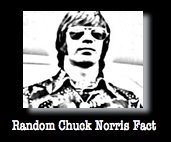I figure Wander might have an interest in this op-ed piece from one of his favorite authors (I think--maybe I'm remembering wrong), Orson Scott Card. Apparently, he writes a column for a paper up in Wild Willie's neck of the woods and had a few choice words to say about the journalist coverage of this whole financial meltdown and takes a different angle than what I was expecting before I started reading this:
This housing crisis didn't come out of nowhere. It was not a vague emanation of the evil Bush administration.Just goes to show you that no one's hands are clean in this mess.
It was a direct result of the political decision, back in the late 1990s, to loosen the rules of lending so that home loans would be more accessible to poor people. Fannie Mae and Freddie Mac were authorized to approve risky loans.
What is a risky loan? It's a loan that the recipient is likely not to be able to repay.
The goal of this rule change was to help the poor — which especially would help members of minority groups. But how does it help these people to give them a loan that they can't repay? They get into a house, yes, but when they can't make the payments, they lose the house — along with their credit rating.
They end up worse off than before.
This was completely foreseeable and in fact many people did foresee it. One political party, in Congress and in the executive branch, tried repeatedly to tighten up the rules. The other party blocked every such attempt and tried to loosen them.



6 comments:
He is, indeed, one of my favorite authors, and goddamn if he isn't right.
"Journalist coverage" ... if what you see on the news about the financial meltdown does not lead you to believe that the media is controlled by politicians then you are delusional.
Card is spot on. If you think it is entirely due to the fat cats on Wall Street then you have been listening to what the running mates want you to hear.
What I found so surprising is the entire article is like an argument Sarah Palin would make against the liberal media bias if I thought she was more insightful.
Yeah, I've seen evidence that a big part of the problem was the subrprime (po folk) loans. And I certainly admit that the mainstream media has a liberal bias (it's not nearly as bad as the bias in conservative media, though.)
Actually, the Fannie Mae thing started with Carter. Clinton put it on steroids, and I do believe that it has contributed significantly to the economic bruhaha.
BUT, for me the intent is important when judging the outcome. I can accept a weak economy caused by an attempt to help the poor much more than I can one caused by the rich just looking to get richer at the expense of others.
Having said that, however, it would be better for everyone for the media to cover more of this aspect of the economy, one just for the sake of integrity, and two to help educate everyone so we don't do it again. I'm starting to find out what Wild Willie, Wankmaster Scratch, and probably some others in the gang already know: what really separates rich from poor is economic education.
Maybe that's the crux of the debate--can you really help the poor when the goal of the rich is to get richer? I guess that's the idea behind supply-side economics and the trickle-down theory, but can it ever really sustain itself over time? It seems like someone has to lose out at some point, and you can only get richer at the expense of someone else. If it's not the rich CEO running the company or the minimum wage service worker at the bottom, then it's gotta be someone on the other side of the globe working for peanuts.
Last year I was sitting outside La Madeleine's here in Houston, watching birds fight over bread on the ground. Two grackles were contesting some fallen scraps when a raven (or whatever those big, black birds with iridescent blue on their feathers are) came over, showed how much bigger he was and chased off both of the smaller birds. Then he ate the bread. As I watched this, I thought that was a pretty good demonstration of economics - those already big get the bread and then just get bigger. It also shows how old that model is - as old as life, basically.
I've been thinking of a different model for a few years now. Maybe I can see us headed that way before I die.
Post a Comment